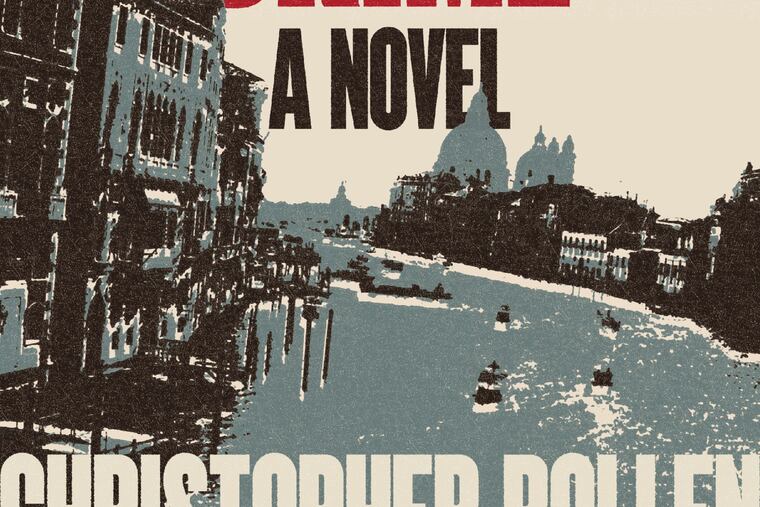‘A Beautiful Crime’ is a deliciously diabolical suspense tale à la Patricia Highsmith | Book review
A couple's get-rich-quick scheme leads to menace in Venice.

A Beautiful Crime
By Christopher Bollen
Harper. 377 pp. $28.99
Reviewed by Dennis Drabelle
Christopher Bollen’s A Beautiful Crime invites comparison with Patricia Highsmith’s Ripley series and Alan Hollinghurst’s The Swimming Pool Library. What makes the crime in Bollen’s stylish new novel so beautiful is that the perps’ plan works out even better than they’d hoped — at least for a while.
One of Bollen’s protagonists, 25-year-old Nick Brink, works for a New York appraiser of old silver. The other, his two-years-older boyfriend, Clay Guillory, inhabits the rundown Brooklyn house of the late Freddy van der Haar, the much older man Clay took care of during Freddy’s final, harrowing years of battling AIDS. As a reward for his faithfulness, Clay has inherited both that house and half of a dilapidated palazzo in Venice. The deceased, you see, was a scion of one of New York’s patrician Dutch families.
After they meet at Freddy’s funeral, Nick and Clay become an item — and a conspiracy of two. During a recent sojourn in Venice, Clay was the victim of a nasty trick played by his intra-palazzo neighbor, Richard West, a rich American developer who collects and restores old Venetian art and architecture. Clay has whopping college loans to pay off, and he and Nick hatch a scheme to sell West some fraudulent silver objects from Freddy’s estate (when Freddy ran low on money to pay his colossal medical bills, he became an occasional grifter himself). Nick’s part will be to authenticate these items as an appraiser — though in fact he is little more than a secretary to his boss.
Not only does West fall for this ruse; he is hot to purchase Clay's side of the palazzo. Unbeknownst to West, however, Clay shares ownership with Freddy's sister, who lives somewhere in South America and has no intention of letting the property go. In view of the absurdly high prices of Venetian real estate, Nick and Clay set their sights on a much higher sum than the one they scored by passing counterfeit antiques; this time they will forge a new deed that shows Clay as sole owner. Not surprisingly, they get embroiled in trouble and violence.
Bollen, a contributing editor at Vanity Fair, is a skilled purveyor of suspense. And he knows his overcrowded Venice, the permanent population of which he puts at a mere 53,000, some of whom send “their children … into exile so their bedrooms [can] be Airbnb’ed for prime weekend rates.” In addition, Bollen’s wit sparkles on almost every page. “Although Nick had lived in New York City for seven years,” we are told, “he’d never developed the talent for rudeness.” “The exterior [of Freddy’s house] was best described as ‘the shade of twenty-eight Brooklyn winters,’ although Clay began to think of it as ‘rotted snail.’” Catching a female friend nibbling on her nails before dinner, Nick quips, “Don’t fill up on cuticles. We have swordfish to share.”
I wonder, though, if the dishonest and brutal world Nick and Clay inhabit could leave them quite as wholesome and enamored of each other as Bollen would have us believe. I thought of Kate Croy’s haunting comment at the end of another novel that takes place in a Venetian palazzo, Henry James’ The Wings of the Dove. Reflecting on her and Merton Densher’s treachery toward the dying Milly Theale, Kate says, “We shall never be again as we were.” On the other hand, Milly Theale was a near-saint while Richard West is, as Clay rightly points out, “a terrible person.”
Still, in lieu of going to Venice, which as Bollen reminds us is being “visited to death,” you might want to settle for a few cuticle-biting hours with A Beautiful Crime.
Drabelle is a former mysteries editor of the Washington Post Book World, for which he wrote this review.